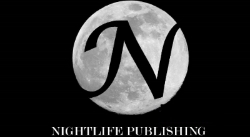One day you decided you were going to write a book. You came
up with a story, changed it, fought with it and after a long struggle you finally
reached the words “The End”.
Then you realized it was only the beginning. You edited it
over and over again. You got feedback from beta readers. You got a proofreader and
a professional editor. You got a cover designer. You wrote promotional copy.
You found early reviewers. One day you
released your story out into the world in eager anticipation for the world’s reaction.
This essay is about responding to that reaction.
Of course, I’m using “the world” as a dramatic device. In
the vast majority of cases only a miniscule segment of the world’s population
will have any knowledge or interest in your book, even if you sell a million
copies. Out of seven billion people on the planet, only a select few will
notice your book. But their reaction can be magnified out of all proportion
depending on how you deal with it.
Their Four Responses
People will either
love, hate, forget or ignore your story. These responses are based on a
variety of factors, only some of which will be in your control. A reader might
love your story because it reminds her of some aspect of her own life. She
might hate it for the same reason. While you can’t predict how an individual reader
or a group of readers will respond to your work, there are a few things you
should keep in mind when these responses come.
If people love your
story and tell you about it in reviews, emails and social media posts, take
the time to thank them for their reaction. Fans are extremely valuable to an
independent author (See Champions, Tastemakers
and True Fans). Creating a personal connection with each of them is the
best way to build a base of support that will buy your next book. It also helps
to have another story available for them to read, because once a reader finds
an author and characters they love, they will look for more stories. Keep
writing.
If people hate your
story and tell you about it, you need, as much as possible, to not see the attacks
on your story as attacks on you. As writers we are mentally and emotionally
connected to our work. It is difficult to see a distinction between ‘this story
sucks’ and ‘this writer sucks’. (See Learning to Love the Bad Review) But there is
no point in getting into an online war of words with a bad reviewer. You won’t
be able to change his mind about your book and you’ll probably alienate other
people who see your defensive reaction. More importantly, focusing on a
negative review will take energy away from efforts you could be putting into your
next book.
If people forget your
story, it is likely that they never bothered to react to it one way or
another. There isn’t much you can do with this group except write the next
story and try to bring them back as a repeat reader. A silent repeat reader, or
even a one-time reader, isn’t as good as a vocal fan, but it still worth having
them in your corner.
If people ignore your
story you might feel lost. You won’t know if there is some technical
problem that prevents people from buying it or some problem with your pricing,
your cover, your description or some other factor that you can’t think of. You
might start to feel isolated, as if the entire effort to put out a story was a
complete waste of time. What’s the point of releasing a book if no one is going
to read it?
Just remember that selling
your work is not always a direct reflection on the quality of your work.
People can’t decide a story is bad if they’ve never read it. It is impossible
to read it if they ignore it or have never heard of it. You might need to change
your sales and marketing strategy. You might need to improve your sales copy
and cover design. You might learn lessons that you can apply to your next book.
But under no circumstances should you
stop writing. A successful writer isn’t just defined by sales (See How Do You Define a Successful Writer?) and the
book that is ignored today can find a new audience when your next book comes
out.
Your One Response
No matter how the
public reacts to your work, you need to keep writing. It does you no good
to be controlled by the fleeting moods and attitudes of your readers. You can
be aware of them. You can respond to them in a polite and professional manner.
You can take them into account in your future marketing plans. But the only way
to fail as a writer is to stop writing. Public reaction, positive or negative, can’t
stop you unless you give into it.
Have fun.
Gamal

